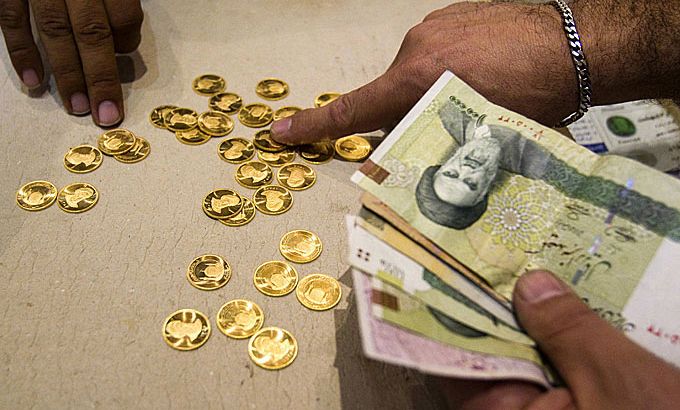
Iran’s Rial: Bad policy or Western sanctions?
As the country’s currency value hits a record low we ask what is really behind the Rial’s continuing downward spiral.
Iranian President Mahmoud Ahmadinejad is under growing pressure over the sharp drop of his country’s currency.
Riot police in the Iranian capital, Tehran, have fought with protesters angry over the sharp fall in Iran’s currency, the Rial.
Hundreds of demonstrators turned out on Wednesday to demand the governor of the central bank step down. They also accused their president of financial mismanagement.
|
“When you try to shut down the Iranian central bank the objective is to prevent Iran from importing any goods doesn’t matter if its medicine, foodstuff or machines. Not only does it make it more expensive because the Iranians have to use mechanisms outside of the banking sector, it also makes it less reliable.” – Mohammad Marandi, an associate professor at the University of Tehran |
The Rial has fallen to a record low against the US dollar in recent days.
Ahmadinejad blames US and EU sanctions imposed on Iran because of its nuclear programme.
Calling it an economic war, the Iranian president said: “Everyone is aware that foreign trade and commerce don’t have a very high share in the Iranian economy. But the figures are being used in the psychological war for a greater effect on the markets. The number of US dollars being exchanged in our country is not that big.”
The Rial has fallen in value by about 40 per cent over the past week. The drop is being blamed on domestic mismanagement of the economy and Western sanctions.
A year ago, it cost about 12,000 Rials to buy one US dollar. But this week, in just three days, Iran’s currency dropped by about 20 per cent. It hit a record low of more than 37,000 Rials to a dollar.
That means the Rial has lost more than 75 per cent of its value in the past year.
Hillary Clinton, the US secretary of state, has acknowledged that sanctions have contributed to Iran’s economic problems, but says those sanctions could easily be lifted.
|
“The question is not ‘does the responsibility lie on the US or the EU’…it lies on the Iranian government to adhere to its international obligations concerning its nuclear programme. That’s the single reason why there are sanctions against Iran.” – Joshua Goodman, the communications director at the Transatlantic Institute |
“I think the Iranian government deserves the responsibility for what’s going on inside Iran and that is who should be held accountable and I think they have made their own government decisions, having nothing to do with the sanctions that have had an impact on the economic conditions inside the country… and of course the sanctions have had an impact as well but those could be remedied in short order if the Iranian government were willing to work with the P5+1 and the rest of the international community in a sincere manner.”
P5+1 refers to the five permanent members of the UN Security Council – China, France, Russia, the UK, the US – plus Germany. In 2006, this group of countries joined the diplomatic efforts with Iran with regard to its nuclear programme.
So what is really behind the latest collapse of the Rial?
Joining Inside Story for the discussion with presenter Ghida Fakhry are guests: Mohammad Marandi, an associate professor at the University of Tehran; Babak Emamian, the chairman of the British Iranian Business Council; and Joshua Goodman, the communications director at the Transatlantic Institute, an organisation aiming to foster dialogue between the US and the EU in the fields of global security, Middle East peace and human rights.
|
“The cause of all this misery is because of the exchange control that was imposed at the beginning of the Islamic revolution. The death knell of any economy is when you impose exchange control because you introduce black-market economy…and it starts with the currency.” Babak Emamian, the chairman of the British Iranian Business Council |